
In today's digital age, technology and web applications play a central role in our day-to-day activities. To ensure flawless software, the crucial step of software testing comes into play. Software testing involves examining the behavior of software and validating its verification process. It aims to identify and rectify any errors or bugs in the software, thus ensuring its reliability and functionality. In this blog, we will provide an introduction to Selenium testing and its key components. If you're looking for comprehensive training in Selenium, FITA Academy offers the best Selenium Training in Chennai. Our expert trainers provide extensive hands-on training, including real-time projects, to help you gain a deep understanding of Selenium's core components.
Selenium testing is renowned for its effective delivery and compatibility with all major web browsers. As one of the top testing tools available, Selenium offers a user-friendly API and is relatively easy to understand and work with. Learning Selenium testing can also be beneficial for those pursuing a career in manual testing, as it enhances their professional progress and skill development. Many reputable companies prefer to hire Selenium testers due to its popularity and reliability. By acquiring Selenium skills, you can significantly expand your career opportunities in the software testing domain.
One of the key reasons behind Selenium's popularity is its ability to automate testing processes and replace manual testing efforts. With its open-source framework and free availability, Selenium is highly recommended by expert developers. Its features make it a preferred choice for testing web applications and ensure efficient and reliable testing practices.
Selenium Testing
Let’s discuss what is selenium testing. Selenium was originated by Jason Huggins in 2004 as an internal tool at ThoughtWorks. Selenium is a front-end automated testing suite used for testing Web Applications. It is an open-source testing tool for web applications across various browsers. Selenium is comparatively easy to learn if the learner has a basic knowledge of HTML. Knowledge of Python and Java is a bonus for learning Selenium Testing. Selenium requires Coding Skills. It will take time to set up and maintain. Selenium requires the integration of a third party to carry out many testing processes. After that, they decided to merge both the projects Selenium and WebDriver and called the new project Selenium WebDriver (Selenium 2.0).
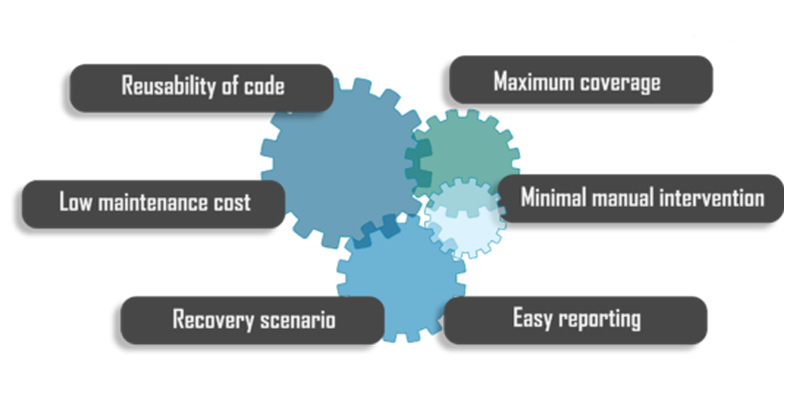
Advantages of Selenium
- Selenium is Open-Sourced.
- It supports the OS.
- Selenium is Reusable.
- Browsers are supported by Selenium.
- Updates constantly.
- Selenium tests across devices.
Disadvantages of Selenium
- As all the test cases need to be scripted, the test development will be slow.
- It only supports web browsers but won't support mobile and Desktop.
- Third-party solutions are required to cover all the testing needs.
Components of Selenium and its Advantages
Selenium is composed of many components. Each component is responsible for taking a specific role in helping with aiding the development of Web Application tests.
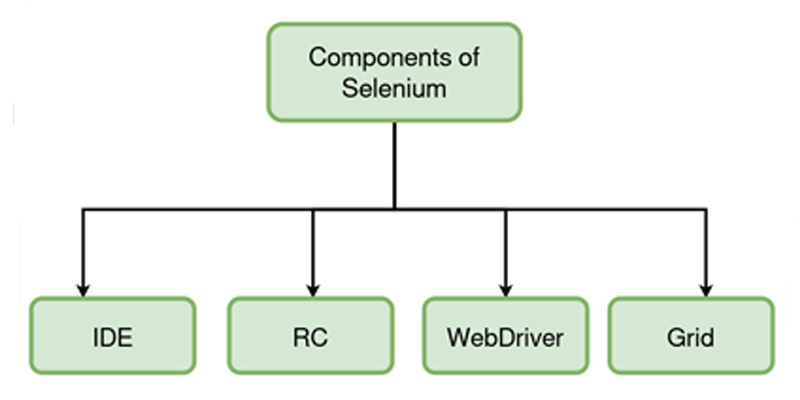
Selenium Client API: There are a lot of alternatives available for Selenese. Selenium test commands can be written in various other programming languages too. There are a lot of alternatives available for Selenese (Command Language). These Tests communicate with Selenium by calling methods in the Selenium Client API.
Currently, Selenium provides Client API for
- Java
- C#
- Ruby
- JavaScript
- R
- Python
Selenium IDE: It is an open-source web automation testing tool under the Selenium suite. Selenium IDE allows the recording, editing and debugging of functional tests. The old name of the IDE is Selenium Recorder. It doesn't require any programming logic to write test scripts like Selenium WebDriver and RC. Here are some of the advantages of Selenium ide.
- It helps to control the speed of the test cases.
- It helps to execute the entire Test Suite. It also helps to run the currently selected test.
- It helps to pause and resume a test case.
- It helps to step into a specific command in the test script.
Selenium Remote Control: Selenium Remote Control (RC) is a server that accepts browser commands via HTTP. Selenium RC is written in Java.
Selenium provides client drivers for
- PHP
- Python
- Rub
- Perl
- Java
- JS
- C#
Advantages of Selenium RC:
- It supports cross-browser testing.
- It supports conditional operations and iteration.
- RC supports data-driven testing.
- It readily supports New browsers.
- Selenium Remote Control execution speed will be more than IDE.
- User-preferred languages are supported.
Selenium WebDriver: It is a Web framework that allows the user to execute cross-browser tests. WebDriver sends accepted commands to a browser. Most browser drivers launch and access applications such as Google Chrome, Firefox, Safari, Microsoft Edge, or Internet Explorer.
Advantages of Selenium Web Driver:
- It is easy to install than Selenium RC
- Selenium WebDriver allows direct browser communication.
- It allows more realistic browser interaction.
- WebDriver supports Frameworks.
- Execution time is faster when compared to RC and IDE.
- No need for any separate component like an RC server is needed.
Selenium Grid: Selenium Grid is also a server like Selenium WebDriver, but instead of accepting commands, it allows tests to use web browser instances running on remote machines.
Advantages of Selenium Grid:
- It improves the turnaround time of the test result.
- It is useful when the Test Suite is large and takes more time to run.
- Offers flexibility.
- Ensures maximum test coverage within a limited time.
There are more than one nodes where the execution takes place. In all these 5 selenium components, Selenium IDE (Integrated Development Environment) is considered to be the major tool in the Selenium Suite.
Languages supported by Selenium
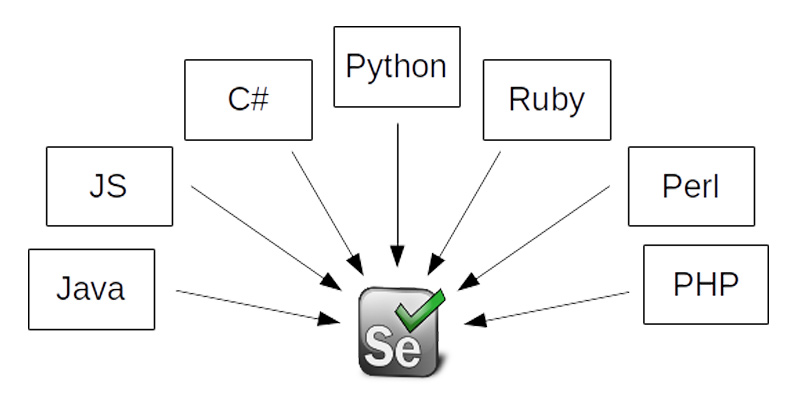
As we discussed earlier, Selenium WebDriver (Selenium 2.0) supports various major programming languages such as C#, Java, JavaScript, Ruby, Python, Kotin (programming language) and PHP.
Primary uses of Selenium Testing:
- It is used to automate testing across various web browsers.
- It automates the functional tests at the UI layer of the Web Application under test.
When we ask what selenium is used for, that doesn’t include only the above mentioned uses alone. Selenium has several other uses too, like enabling testers to write automated tests programming languages to test functionality of the web application.
Languages used in Selenium Testing
- JavaScript(Node. js)
- Python
- Ruby
- Java
- Kotin (programming language)
- C#
Testing levels that Selenium supports
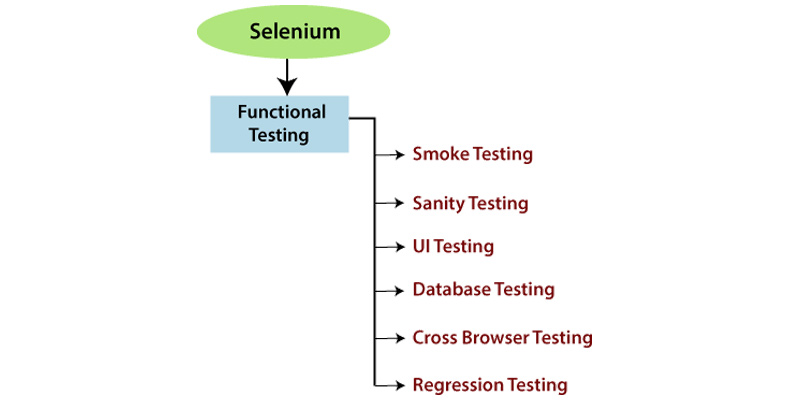
It supports Functional Testing at the System and Acceptance Testing Level of the Software Development Life Cycle. Experts mentors in Selenium Training in Madurai will help you get skilled with the front-end automated testing suite. When we ask about selenium supports which testing languages, the answer doesn’t settle only with Functional Testing and Acceptance testing alone. It includes a lot of other levels of testing also like
- Smoke Testing.
- Sanity Testing.
- UI Testing.
- Database Testing.
- Cross Browser Testing.
- Regression Testing.
Why and how is Selenium used in Automation Testing?
The reason for using Selenium in Automation is to make sure that the web applications are high-quality. Selenium is used to check whether the tests are progressive, regular or responsive. Testers prefer Selenium because it is easy to generate test scripts to validate the functionality. Another main reason is that Selenium releases regularly.
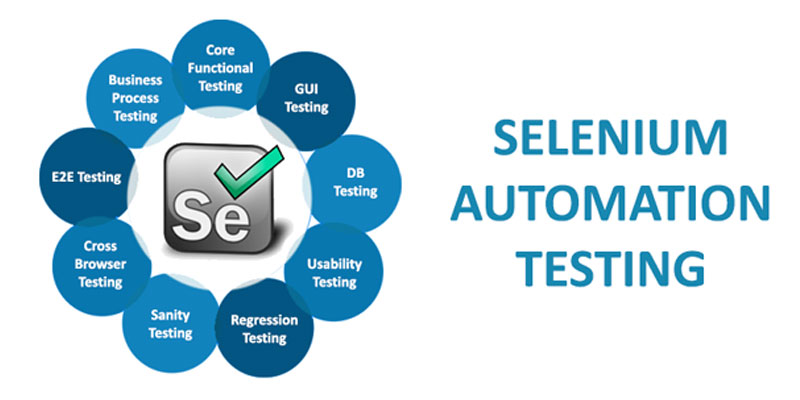
Automated testing is a testing technique that automates the process of validating the functionality of the software. It ensures it meets requirements before being released into production.The work of automation testing with selenium is one of the major advantages of it. It provides a single interface that lets the user write test scripts in programming languages like Ruby, Java, Node JS, PHP, Perl, Python, and C#, among others. Tests can run automatically whenever the source code changes and check in and notify the team or the developer if they fail. It saves the developer's time. For automation testing with selenium, Java Standard Edition or Core Java is more than enough. But it doesn’t require Advanced Java.
Steps to do Automation Testing in Selenium
- The first step is to create a Selenium WebDriver instance.
- Then configure the browser if it is required.
- The next is to navigate it to the required web page.
- Then locate the relevant web element.
- The next step is to act on the web element.
- The last step is to verify and validate the action.
How does Selenium support multiple languages?
With specific drivers that offer commands from the Selenium API, selenium support language such as C#, Java, Ruby and many more programming languages to write test code. But Selenium was not allowed to use C++ & C programming languages. Selenium performs only UI validation which doesn’t support database testing directly. Expert trainers in Selenium Course in Coimbatore provide extensive training on testing concepts about Selenium Framework.
The architecture of Selenium WebDriver
- Selenium test script: The code written in a programming language such as Java, PHP, or Python that the driver can interpret.
- JSON Wire Protocol: It provides a transparent mechanism to transfer data between a server and a client. It serves as an industry standard for various web services.
- Browser drivers: Drivers are explicitly used by each browser so that it can establish a secure connection with the browser.
Reasons Why Selenium Testing is on Demand?
- We will find a lot of reasons for the demand when we come to know what is selenium tool.
- It helps to test web applications across a variety of browsers.
- It can execute the test cases better than any other tool.
- It is capable of communicating directly with the browser.
- There are a lot of Job opportunities available for Selenium Testers in Companies.
- Selenium is one of the best web testing tools to help developers with automation testing.
- Selenium can automate many operating systems like Windows, Mac OS, and Linux, as well as multiple browsers like Internet Explorer, Firefox, Chrome, etc.
- Selenium testing will bring a fortune in 2023. It is expected to have 27,453 new openings approximately for software testing jobs across India. Selenium Testing is a scope with a vast future.
Now you all know what selenium is used for and why it is in Demand. As mentioned earlier, Selenium is considered one of the best testing tools. There is a lot of career scope for Selenium in future. If you have a good knowledge of Selenium, there is a possibility that you might get hired by a high-rated company. Join Selenium Training in Salem at FITA Academy to master Selenium Testing.
